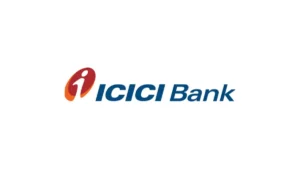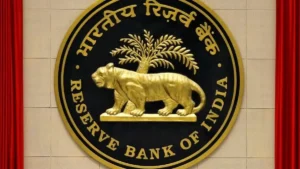The Reserve Bank of India (RBI) released a report applauding the performance of Indian banks and non-bank lenders, emphasizing the need for stronger governance and risk-management practices to fortify their balance sheets. Despite a remarkable 12.2% growth in the consolidated balance sheet of scheduled commercial banks (SCBs) in 2022-23, the RBI underscored the importance of continued improvement.
Key Findings
-
Double-Digit Growth: The consolidated balance sheet of SCBs witnessed a remarkable 12.2% growth in 2022-23, marking the highest in nine years.
- Driving Factors: Bank credit, experiencing its fastest expansion in over a decade, and accelerated deposit growth were the primary drivers of the impressive balance sheet growth.
- Individual Borrowers’ Impact: Non-food credit growth soared to 15.4% in 2022-23, fueled by the strong demand for loans among individual borrowers, compared to 8.7% in the previous fiscal year.
- Asset Quality Improvement: Lower slippages contributed to an improvement in asset quality across all bank groups, with gross non-performing assets (GNPA) to total advances ratio dropping to a 10-year low.
- Profitability and Capital Positions: Higher lending rates, lower provisioning requirements, and improved asset quality boosted the profitability of banks. The consolidated net profit of the banking industry grew by 44.6% in 2022-23.
- Asset Quality Metrics: GNPA as a percentage of gross loans showed significant improvement, standing at 5% for state-run banks and 2.3% for private banks in 2022-23.
- Capital Adequacy: Banks strengthened their capital buffers, with the capital adequacy ratio reaching 17.3%, up 50 basis points from the previous fiscal year.
- RBI’s Measures: Experts appreciated RBI’s efforts to pre-empt financial stress, including higher risk weights, provisioning on stressed exposures, and the proposed transition to the expected credit loss (ECL) framework for banks.
- NBFCs’ Funding Diversification: The report emphasized the need for non-banks to diversify their funding sources to reduce overdependence on bank funding, aligning with Governor Shaktikanta Das’s recent statement.
- NBFCs’ Growth: Non-banking financial companies (NBFCs) displayed robust balance sheet growth with improved asset-quality metrics and stronger capital buffers, primarily driven by double-digit credit growth, notably in unsecured loans.
- RBI’s Regulatory Action: The report highlighted RBI’s recent mandate of higher risk weights on unsecured loans, applicable to both banks and non-banks, emphasizing the importance of diversification in funding sources for NBFCs.
Questions Related to Exams
Q: What was the growth rate of Indian banks’ consolidated balance sheet in 2022-23?
A: Indian banks achieved a significant 12.2% growth in their consolidated balance sheet during 2022-23.
Q: What were the primary drivers of this growth?
A: The main drivers were the fastest pace of bank credit expansion in over a decade and accelerated deposit growth.
Q: How did individual borrowers impact non-food credit growth?
A: Non-food credit growth surged to 15.4% in 2022-23, driven by a strong appetite for loans among individual borrowers.
Q: What contributed to the improvement in asset quality across banks?
A: Lower slippages were a key factor, leading to an improvement in asset quality across all bank groups.
Q: How did the profitability of banks fare in 2022-23?
A: The consolidated net profit of the banking industry grew by 44.6% in 2022-23, with state-owned banks leading at 57.3% and private sector banks at 29%.
Q: What is the status of gross non-performing assets (GNPA) for state-run and private banks?
A: GNPA as a percentage of gross loans stood at 5% for state-run banks and 2.3% for private banks in 2022-23, showing significant improvement.




 PhonePe Launches AI-Powered Natural Lang...
PhonePe Launches AI-Powered Natural Lang...
 ICICI’s New Swasthya Pension Scheme: A S...
ICICI’s New Swasthya Pension Scheme: A S...
 RBI’s New Rulebook: UTI Required for All...
RBI’s New Rulebook: UTI Required for All...








